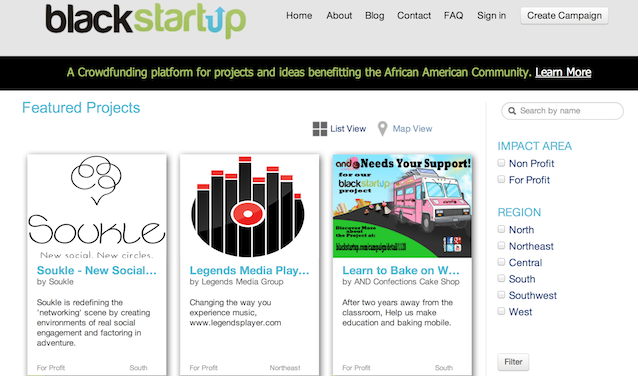In the past five years, crowdfunding sites like Kickstarter and Indiegogo have revolutionized the way entrepreneurs go about raising capital for new business ventures. Although these sites have helped turn countless of startup pipe-dreams into a reality, a significant number of entrepreneurs, Blacks in particular, aren’t necessarily feeling the same love…until now.
BlackStartup recently made its debut with a crowdfunding platform that focuses on funding projects and ideas benefiting African Americans.
Founders Nathan Bennett-Fleming, Olugbolahan Adewumi, Aaron O. Brien, Kyle Yeldell, and Christopher Hollins are determined to close the “Black startup gap,” as they call it, by attempting to fix the root cause: lack of capital.
“I think it is important that we encourage non-profits and social enterprises to raise resources on our platform to address social problems facing the African-American community,” BlackStartup CEO Nathan Bennett-Fleming told NewsOne.
BlackStartup takes a standard approach to crowdfunding: Each project featured on the platform is accompanied with a project description, specific goals, and a background on the founders. And similar to other sites, participants only receive the money if they reach their complete goal. ”There is no specific type of businesses that we are attempting to promote. We want to support projects, ideas, and causes that are broadly connected to the African-American community,” said Bennett-Fleming.
The site’s launch premiered with seven projects, including a math curriculum taught through playing the piano, a family business that makes homemade hair products, and a website featuring social commentary on daily news.
The Washington, D.C.-based company has had no problem gaining praise and capital, with the site snagging the coveted Yale Entrepreneur Institute’s Fellowship, which doles out $20,000 in capital seed money, an elite mentor, and a 10-week boot camp in New Haven, Ct.
While BlackStartup focuses primarily on supporting Black causes through funding, Bennett-Fleming says he and the founders have the ultimate goal of expanding to help other marginalized groups. ”We are considering broadening our approach to include other minority groups on our platform,” he said. ”We want to use these new technologies to address the Black entrepreneurial gap, the Black opportunity gap, and other economic challenges facing the Black community as well as other marginalized communities.”



